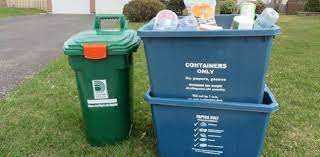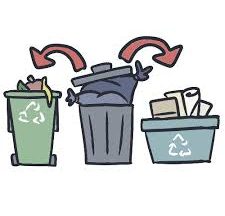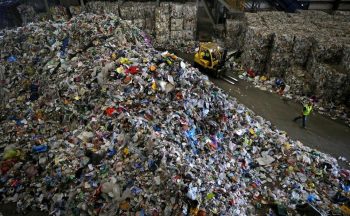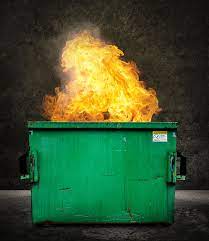 July 2022
July 2022
Much has changed when it comes to recycling.
The simple truth is that recycling, as it is currently handled, does not work. Throughout Canada and the United States, cities and towns must decide if they are to abandon recycling programs or invest millions in infrastructure to process plastic, paper and other items.
Not too long ago, recycled items earned revenue for cities and towns or got disposed of at no cost. That was before China and other countries refused to accept “contaminated” and unusable recycled items from Canada and the United States. Our “single bin” approach to recycling fails to ensure items are properly sorted and cleaned before sending them for recycling. Our failure to effectively do so before discarding items has become a problem.
 Today, it can cost millions of dollars to have items intended for recycling be disposed of. Boston is one city that pays over five million dollars each year to have recycled items carted away. In 2017, that cost was about $250,000. Waste Management, a large recycling company, once earned over $100 a ton for paper it collected. Paper for recycling is now worthless, cardboard is worth 70 percent less and glass costs more to recycle than it can be sold for. Many items intended for recycling now sit in dumping areas or are burned.
Today, it can cost millions of dollars to have items intended for recycling be disposed of. Boston is one city that pays over five million dollars each year to have recycled items carted away. In 2017, that cost was about $250,000. Waste Management, a large recycling company, once earned over $100 a ton for paper it collected. Paper for recycling is now worthless, cardboard is worth 70 percent less and glass costs more to recycle than it can be sold for. Many items intended for recycling now sit in dumping areas or are burned.
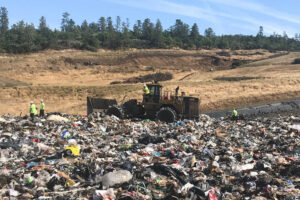 For recyclers, costs are high and demand is low, making recycling unattractive. Toronto, much like other cities, has failed to establish a workable recycling program that is revenue neutral. Current options include large investments in new processing equipment, disposal of recycling in waste dumps, or burning. None are attractive options.
For recyclers, costs are high and demand is low, making recycling unattractive. Toronto, much like other cities, has failed to establish a workable recycling program that is revenue neutral. Current options include large investments in new processing equipment, disposal of recycling in waste dumps, or burning. None are attractive options.
High-rise communities pay additional for dumpsters to separate items for recycling. They invest in tri-sorter trash chutes and pay employees to further separate these items. There is a cost to water used to clean items disposed of as recycling. While there may currently be financial benefits to communities from recycling, the value of these efforts is questionable if items, once collected, are not being recycled.
Regions that do not properly separate recyclables, which includes Toronto, can pay 50 percent more to have waste accepted at a plant. Some regions may be forced to discontinue curbside pickup and financial incentives for recycling.
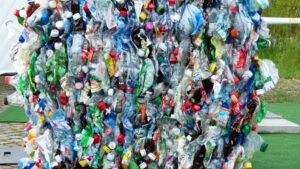 Paying for collection of recycled material, then paying again for acceptance somewhere can be difficult to justify when money is needed for health, education and infrastructure repair. One option may be to charge consumers that fail to properly separate recycled materials. Another is for manufacturers to be charged a fee covering the cost of separating and recycling their products once disposed of. Combining these options offers a way to make all parties responsible for disposal and separation of items. Directing these funds to build more efficient recycling plants, and proper separation of items for recycling, offers a sustainable solution.
Paying for collection of recycled material, then paying again for acceptance somewhere can be difficult to justify when money is needed for health, education and infrastructure repair. One option may be to charge consumers that fail to properly separate recycled materials. Another is for manufacturers to be charged a fee covering the cost of separating and recycling their products once disposed of. Combining these options offers a way to make all parties responsible for disposal and separation of items. Directing these funds to build more efficient recycling plants, and proper separation of items for recycling, offers a sustainable solution.



